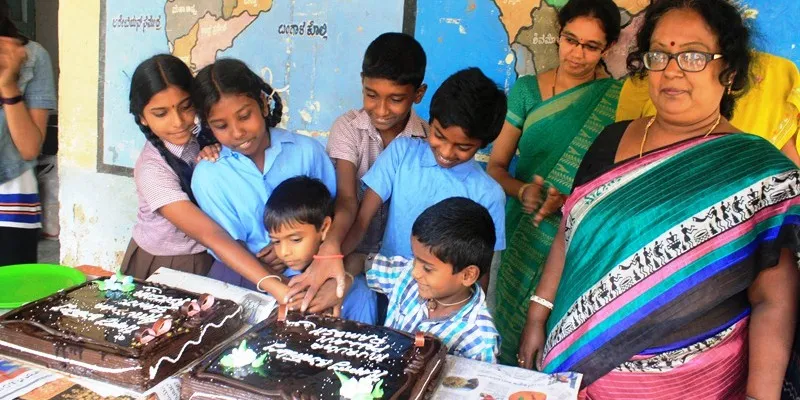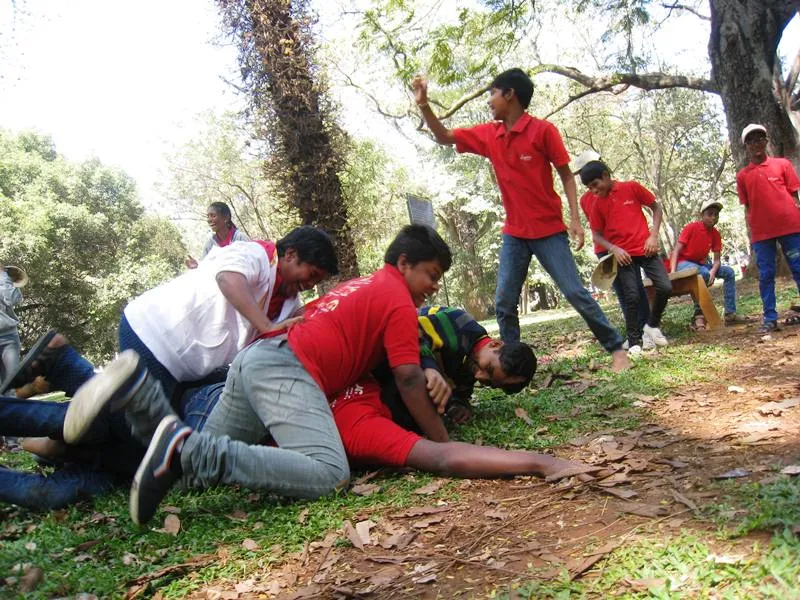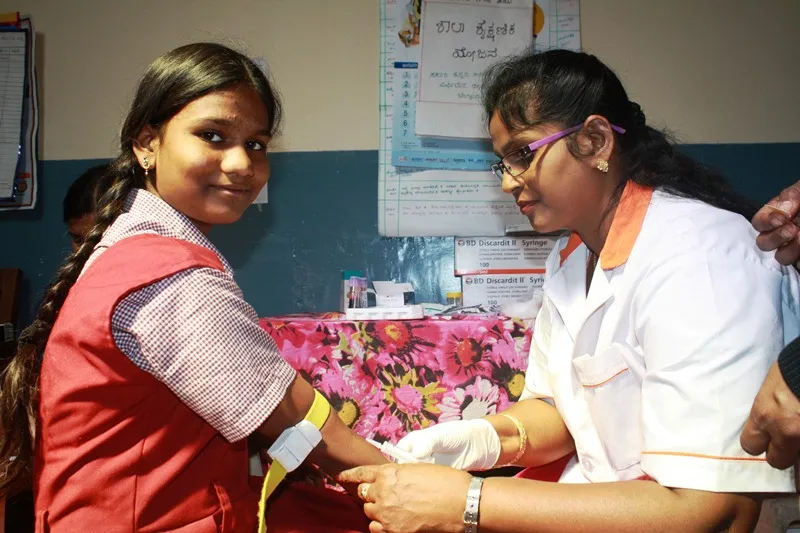Educating poor children for 17 years, this organisation has alumni working for Infosys and Taj today
Ashwini Charitable Trust (ACT) began its journey 17 years ago in Bengaluru. Presently, they have an impact space of over 350 children hailing from nine slums across the city.

Ashwini Charitable Trust (ACT) grew out of a desire to provide education and build skills of underprivileged children in order to prepare them for employment. Typically, a child stays with Ashwini for 10 years, till he/she finishes their higher studies and can be gainfully employed.
“We believe that if a family is earning less than Rs 10,000 in Bangalore, education is not very affordable for them,” says Avinash Giridhar, Programme Manager at ACT. These are the kind of families Ashwini gets involved with. Most of the children’s parents are involved in unskilled work. These families are identified by word of mouth, where the parents inform the trust about other such children that need help.
One of the ways through which the trust supports these children is by sponsoring their education. They are presently supporting over 150 children who attend government-aided schools. This implies taking care of their school fees and school supplies. After school, these children are brought to one of their learning centres for extra classes and activities, everyday. For holistic development of the children, there are music, dance, art, painting classes and regular excursions. On an average 40-50 volunteers are involved with the trust daily.
Ashwini also holds medical camps when the funding allows them to. “The trust regularly administers vaccines to children who have not had them,” Avinash says. The in-house counselor identifies children with learning disabilities and are sent to the National Institute of Open Schooling (NIOS). The model remains the same in these cases, where Ashwini pays for their NIOS fee and the children are brought to the centre for after-school classes.
In case of other medical needs, the Trust funds 75 percent of the expenditure. “The 25 percent is charged to keep the parents accountable. This makes them more serious in taking care of the child,” he adds.

Ways in which Ashwini makes a change
The second kind of intervention is through a programme where employees and volunteers from Ashwini visit two government schools in Murphy town and teach the students alongside the school teachers. This idea emerged when the trust realised that the dropout rate among government school children in Karnataka soars after they complete Class VIII. The trust deciphered that this is because the medium of instruction among government middle schools in Karnataka is Kannada and Tamil. In government high schools the students are taught in Kannada or English. The language barrier poses a hindrance for some children. Although English is taught as a subject in these middle schools, the quality of teaching is often low. According to Avinash it is not uncommon to come across a child studying in Class VIII who is able to speak only 3-4 words of English.
To change this, the trust sends two employees and a few volunteers on working days to aid the children’s understanding of English and Math. The volunteers take 5-6 classes per school, everyday, covering over 180 children in the process. Presentations and digital media often corroborate their teaching efforts.
Another programme started by Ashwini is the Mothers’ Empowerment Program, where they work closely with the mothers of the children so that they are aware of what the child is learning. Ashwini involves the mothers by allotting them monthly responsibilities to serve and prepare the after-school snacks. Other mothers help with the centre’s upkeep, for which they are paid a salary. They are also made aware of banking systems and are provided with the infrastructure to open bank accounts for their children. They are further urged to put some money into these accounts every month for future use. “We try to integrate the mothers’ community with our operations since they are the people who associate with us the most,” says Avinash.

Overcoming roadblocks
Unsurprisingly, keeping the funding to the required levels has been one of their biggest challenges. Around 80 percent of their funding comes from donors who they try to tie to an individual child. According to their website, the cost of one year of sponsorship for a child amounts to Rs 25,000. The remaining 20 percent of the funding comes from corporates, which is utilised for conducting medical camps and excursions. The trust has tied up with Infosys and takes the children to the Infosys Mysore campus every 2-3 years. “The children here stay in rooms that are often bigger than their houses. This is done to instill an aspiration in the child as much as it is to enable them to have fun,” he adds.
Another challenge for the trust is retaining the children, since kids often have the tendency to discontinue mid-way. Many of these dropouts happen due to parental pressure, since parents feel that making their children come every day is taxing for their child. Avinash tells me that this is also a reason why they try to build a network with the mothers, so that they are able to see the bigger picture. “We have four girls who are studying in college and 20 children in Class VI,” he says, pointing towards the gap. To curtail this, one measure they undertake is to involve their alumni with the smaller kids through teaching. This gives them a platform to share their knowledge and experience with the younger, more impressionable kids.
“The idea is to make the children realise the importance of the education they are receiving. Upon seeing the alumni, they can see the difference education has made in their lives,” says Avinash. ACT also encourages its college-going students to help with the administration of the trust and to hone their skills, be it through teaching, handling the accounts or balancing the books. This acts as an internal internship for them.
He adds that child retention is something in which a lot of their everyday thought goes in, along with scalability. “We are not running a school, or an orphanage, nor do we have boarding facilities. So the children do go back to their own lives. In the end, it is their own decision,” he concludes.
Today, Ashwini has over 25 alumni working with companies like Infosys and Taj. While the battle between impact and resources is continual, ACT will continue to work on ways they can improve the scope of opportunities for their children by adding more interventions and improving the existing ones.







